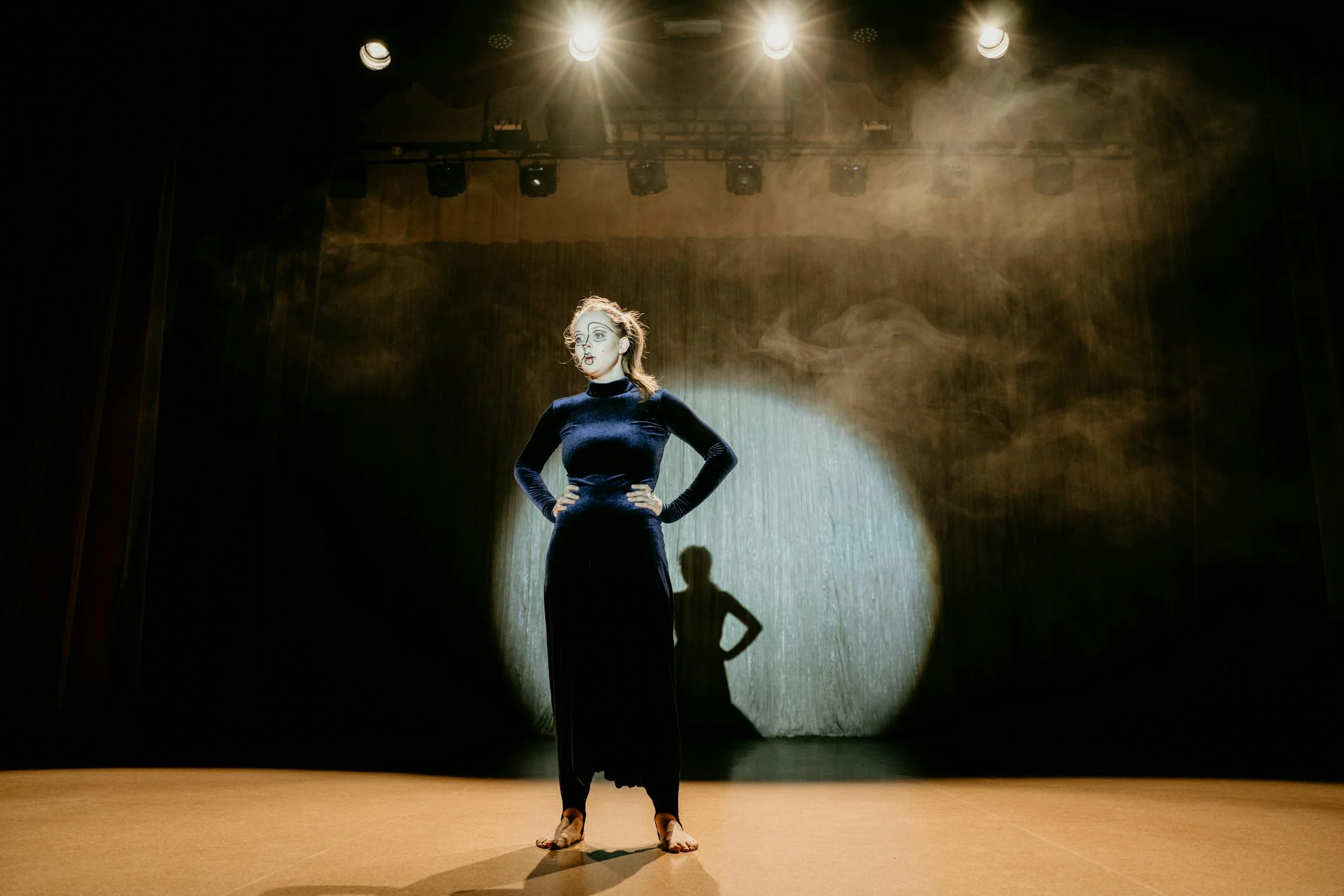How Many Hours Does a Broadway Actor Work?
(By Ray Reese)
 (Photo: Pitt Rom | Pexels)
(Photo: Pitt Rom | Pexels)
Broadway actors are often seen as some of the most talented and hardworking individuals in the entertainment industry. While their performances may appear seamless and effortless on stage, the reality behind the scenes involves long hours, intense rehearsals, and significant physical and emotional commitment. The question, “How many hours does a Broadway actor work?” may seem simple, but the answer is multifaceted. It involves not just the time spent performing on stage but also the extensive preparation, rehearsals, and post-show obligations that make up the demanding schedule of a Broadway actor.
The Performance Schedule
Broadway shows typically run from Tuesday to Sunday, with Monday as the only official day off. On performance days, actors usually have two shows: a matinee in the afternoon and an evening performance. The exact hours of a Broadway actor’s workday vary depending on the specific show and the theater’s schedule, but a general outline can be described.
Evening Performances
For most Broadway shows, the evening performance starts at 8:00 p.m., but actors arrive much earlier to prepare. An actor’s day on a performance day often begins around 4:00 p.m., depending on their role. The first task is to arrive at the theater, where they will begin to prepare their costumes and makeup, which can take anywhere from 30 minutes to an hour. This time also involves warming up vocally and physically, which is essential for maintaining the stamina needed for the show. Physical warm-ups might include stretching, while vocal warm-ups could involve breathing exercises or vocal scales.
After warm-ups, actors typically have a 15-20 minute break before the performance begins. The show itself usually runs between 2.5 and 3 hours, including intermissions. During this time, the actors are performing in front of a live audience, which demands constant focus and energy. Given that Broadway performances often require physical movement, dance, and emotional intensity, actors must be in top physical condition to maintain their performance energy throughout the evening.
Matinee Performances
On days when there is a matinee show, which generally starts at 2:00 p.m., the schedule changes slightly. Actors are typically required to arrive at the theater around 10:00 a.m. to start their preparations, as they would for an evening show. The time between the matinee and evening performances, which is commonly referred to as a “double-show day,” is crucial for actors to recharge and take care of themselves. While some performers use this time to rest or catch up on personal matters, many choose to stay at the theater, doing additional warm-ups or preparing mentally for the evening performance.
On a typical “double-show day,” an actor may work up to 12-14 hours, depending on the length of breaks and the time spent preparing for each show. The physical strain of performing twice a day is significant, and maintaining energy and enthusiasm across both shows is a challenge many actors face.
Rehearsals: The Hidden Hours
 (Photo: Tima Miroshnichenko | Pexels)
(Photo: Tima Miroshnichenko | Pexels)
While performances are the most visible part of an actor’s work, rehearsals are where the bulk of the hard work takes place. Rehearsals are typically scheduled during the daytime, and depending on where the production is in the process, these can be some of the most grueling hours a Broadway actor works.
Pre-Opening Rehearsals
Before a show opens on Broadway, actors undergo extensive rehearsals, which often span several weeks or months. During this time, actors rehearse for 6-8 hours a day, usually 5-6 days a week. These rehearsals consist of blocking (figuring out where to move on stage), line readings, and refining the overall performance. For musicals, actors also rehearse musical numbers, which can include singing, dancing, and coordination with the orchestra or band.
Rehearsals are intense and require actors to learn not only their lines and songs but also to develop their character and chemistry with the rest of the cast. For a new show, rehearsals could last up to 12 weeks before opening night, with many actors working through long hours, especially in the final days leading up to the premiere.
Post-Opening Rehearsals
Even after a Broadway show opens, rehearsals continue. These might be scheduled as “notes sessions,” where the director gives feedback to actors on their performances. These rehearsals might last only a few hours, but they can be mentally and emotionally taxing as actors work to refine their performances and stay fresh after weeks or months of performing the same show.
For instance, a Broadway actor might have rehearsals for a new number that was added during the run of the show, or they might be required to rehearse when understudies or replacements are cast. These types of rehearsals can add another 2-3 hours to an actor’s day.
The Demands of Physical and Mental Endurance
Broadway actors are some of the hardest-working professionals, as the job requires both mental and physical stamina. The nature of the job means actors have to take care of their bodies and minds to ensure they can continue to perform at their best.
Physical Demands
Many Broadway shows feature intense physical choreography, such as dancing, stage combat, or physically demanding roles. Actors performing in musicals often need to have the stamina to sing and dance for long periods of time, sometimes wearing heavy costumes or performing in extreme temperatures. For example, the actors in shows like Hamilton or Chicago perform intricate dance routines while singing at the same time, which requires great physical conditioning.
Even in non-dance-heavy plays, the demands on the body can be significant. Actors who perform in shows with emotionally charged roles might find the strain of portraying intense feelings night after night to be physically exhausting. Additionally, Broadway shows are often performed in grand theaters with large stages, meaning actors must project their voices and energy to fill the space, which can be physically taxing.
Mental and Emotional Demands
The mental and emotional toll on Broadway actors is also substantial. The repetition of performing the same show every night can be exhausting, and actors must constantly find ways to keep their performances fresh and engaging. Many actors also face the challenge of portraying complex characters with deep emotional arcs, which can require a lot of mental energy and emotional vulnerability.
Furthermore, the pressure to meet audience expectations every night can weigh heavily on performers. Broadway actors often receive direct feedback from the audience through applause or boos, and this can affect their performance. Maintaining focus and delivering an excellent performance despite distractions or challenges is a key part of the job.
Rest, Recovery, and Time Off
Despite the intense work schedule, actors do get time off. The standard schedule on Broadway includes a single day off per week—usually Monday—when actors can rest, recover, and take care of personal matters. Additionally, there are vacation periods, which vary depending on the show and the production team’s preferences.
During these times, actors may take time away from the stage to recuperate physically or recharge emotionally. For example, understudies or swings may take over the role for a few performances if the main actor needs time off for health reasons or to rest.
Examples of Broadway Actor Work Schedules
To provide a more concrete understanding of the time commitment involved, here are a few examples of different types of Broadway actors and their work schedules:
-
Lead Actor in a Long-Running Musical (e.g., The Phantom of the Opera): A lead actor in a long-running Broadway musical may work anywhere from 50-60 hours a week, including both performances and rehearsals. These actors usually perform 8 shows a week and have a regular performance schedule, including matinees. Rehearsals might take place during the day when not performing, especially if there are changes or notes to work on.
-
Ensemble Member in a Musical: Ensemble members, who may not have lead roles but play crucial parts in the musical, also have demanding schedules. They typically work 45-55 hours a week, including rehearsals, performances, and the preparation required for each show. Their work schedule may be less intense than the lead actors, but it is still physically and mentally demanding.
-
Actor in a Play: Actors in straight plays (non-musicals) may have slightly different schedules since they may not need to rehearse musical numbers. However, the intensity of performing a play with deep emotional roles is no less taxing. Actors in plays often work 40-50 hours per week, depending on the show’s schedule.
In conclusion, the work of a Broadway actor is far from easy. The hours may vary depending on the type of show, role, and individual schedule, but actors can easily work between 50-60 hours a week or more. This includes performance days, rehearsals, preparation time, and physical and emotional recovery. While the glamour of Broadway may attract many to the profession, the reality is that being a Broadway actor requires dedication, hard work, and perseverance.
For those lucky enough to land a role on Broadway, the rewards are significant, but the hours and demands are truly extraordinary.



